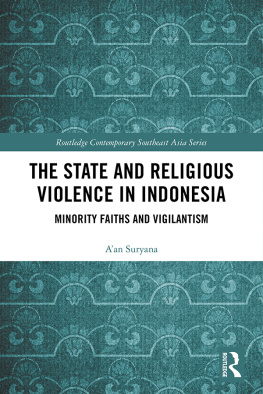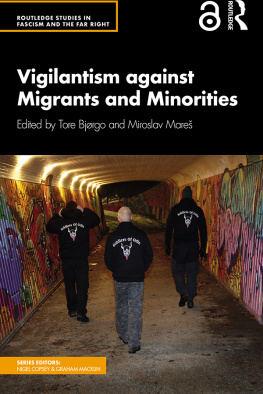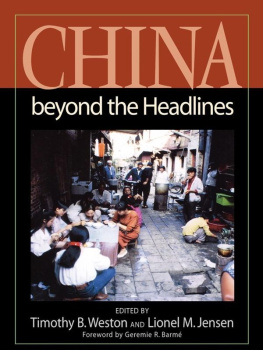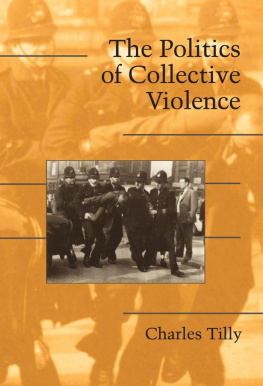
Guatemalan Vigilantism and the Global (Re)Production of Collective Violence
This book grounds an understanding of lynching as an increasingly globalised phenomenon through an examination of two cases in Guatemala.
The chapters cover the issues of migration, tourism, gangs, inter-generational conflict, media, gossip, and rumour to understand national and global patterns of mob-based vigilantism and how diverse factors are funnelled into singular acts of violence. Gavin Weston critically engages with the discussion of Guatemalan lynchings as a form of post-conflict violence alongside other less direct chains of causation. Lynchings have complex, tiered causations based in contestations regarding the ideas and provision of justice. Underlying social problems and similarities in the way lynchings spread through talk and media make them relatively anticipatable in certain contexts and suggest possible spaces for mitigation against their viral spread.
This volume will be relevant to Latin Americanists and those interested in the anthropology and sociology of violence, post-conflict violence, and peace studies.
Gavin Weston is Lecturer in the Department of Anthropology at Goldsmiths, University of London, UK.
Routledge Studies in Anthropology
Linguistic and Material Intimacies of Cell Phones
Edited by Joshua A. Bell and Joel C. Kuipers
Hybrid CommunitiesBiosocial Approaches to Domestication and Other Trans-species Relationships
Edited by Charles Stpanoff and Jean-Denis Vigne
Orthodox Christian Material Culture
Of People and Things in the Making of Heaven
Timothy Carroll
Bureaucracy, Integration and Suspicion in the Welfare State
Mark Graham
Slogans
Subjection, Subversion and the Politics of Neoliberalism
Edited by Nicolette Makovicky, Anne-Christine Trmon, and Sheyla S. Zandonai
Security Blurs
The Politics of Plural Security Provision
Edited by Tessa Diphoorn and Erella Grassiani
Cultural Models of Nature
Primary Food Producers and Climate Change
Edited by Giovanni Bennardo
Guatemalan Vigilantism and the Global (Re)Production of Collective Violence
A Tale of Two Lynchings
Gavin Weston
www.routledge.com/Routledge-Studies-in-Anthropology/book-series/SE0724
Guatemalan Vigilantism and the Global (Re)Production of Collective Violence
A Tale of Two Lynchings
Gavin Weston
First published 2020
by Routledge
2 Park Square, Milton Park, Abingdon, Oxon OX14 4RN
and by Routledge
52 Vanderbilt Avenue, New York, NY 10017
Routledge is an imprint of the Taylor & Francis Group, an informa business
2020 Gavin Weston
The right of Gavin Weston to be identified as author of this work has been asserted by him in accordance with sections 77 and 78 of the Copyright, Designs and Patents Act 1988.
All rights reserved. No part of this book may be reprinted or reproduced or utilised in any form or by any electronic, mechanical, or other means, now known or hereafter invented, including photocopying and recording, or in any information storage or retrieval system, without permission in writing from the publishers.
Trademark notice: Product or corporate names may be trademarks or registered trademarks, and are used only for identification and explanation without intent to infringe.
British Library Cataloguing-in-Publication Data
A catalogue record for this book is available from the British Library
Library of Congress Cataloging-in-Publication Data
A catalog record has been requested for this book
ISBN: 978-0-367-19125-2 (hbk)
ISBN: 978-0-429-20060-1 (ebk)
Typeset in Times New Roman
by Newgen Publishing UK
Contents
Overview
Drawing upon two lynchings that happened in Todos Santos Cuchumatn in the north-western highlands of Guatemala, this book seeks to explain why these two attacks occurred and to reconcile the geneses of these two events with the wider national and regional wave of vigilante lynchings that began in the 1990s and have carried on into the present. The book explores the complex causation of violence and how local, national, and regional factors interplay in the spread of collective violence. The book is A Tale of Two Lynchings because, by the time I arrived in Todos Santos, the lynchings had already happened and my research became a matter of unpicking the stories that circulated about the attacks in an attempt to retrospectively understand what happened through the narratives I encountered. This approach is a layered one as I aim to make sense of lynchings as acts of violence in themselves but also against the backdrop of the national and regional wave of lynchings and in relation to the violence of the conflict, while also exploring how collective violence and violence more generally spread as social phenomena. My approach is distinctly scalar in that I am starting with the local and specific in early chapters before expanding outwards into more nationally and then globally relevant factors in regard to the analysis of vigilante violence. This approach leads to the book being a little strange for the ethnographically inclined as chapters become less localised and less personal as the book progresses.
In this introductory chapter, I will describe the two attacks and contextualise them against the backdrop of a wave of lynchings which began in 1996 in the immediate aftermath of the Guatemalan civil war. The chapter begins with a detailed account of both lynchings in order to unpick the various layers of context and analysis throughout the rest of the book. The chapter ends with the discussion of the wave of lynchings that swept across Guatemala, how they relate to other forms of collective violence, and wider regional practices of vigilantism (Mendoza 2003; Pratten & Sen 2007).
The process of unpacking these lynchings begins in the structures, and the increasing levels of labour migration that underpin deep divisions within the community regarding threats to local Mam-speaking Maya identities. This chapter unpicks the social changes, locally referred to as los cambios spanning rejection of Maya typical clothing, language, media consumption, and the emergence of gangs and how these changes played into the two attacks: the first attack targeted a tourist, the second targeted one of the first wave of labour migrants. This chapter contextualises the history of the town to provide a sense of how and why this history resonates in contemporary disputes and violence.
The explores the relationship between lynchings and the violence of the conflict that preceded them. As lynchings began so distinctly in the same year the civil war ended, there is a clear relationship between old and new violence. This chapter explores how the lynchings in Todos Santos, and Guatemalan lynchings more generally, can be seen as a continuity of violence from the civil war. With lynching participants often consisting of former civil patrollers who were armed and forced to police and patrol their own communities vigilante violence is often seen as a continuation of their war-time policing roles. But as urban areas without civil patrols are also experiencing lynchings and with similar vigilantism now emerging throughout Central America in response to gangs, the relationship between patrollers and lynchings is not so straightforward. With issues of individual and collective trauma affecting responses to threat and the shift from military to civilian policing also contributing to the make-up of lynchings, how much can we (or should we) blame the war? The ubiquity of the term post-war is critiqued in this chapter as a reductionist explanation that flattens understandings of reactive violence. Here, the war and the human rights abuses of the past are approached as significant but often overstated factors in the fomentation of lynchings at both local and national levels.












